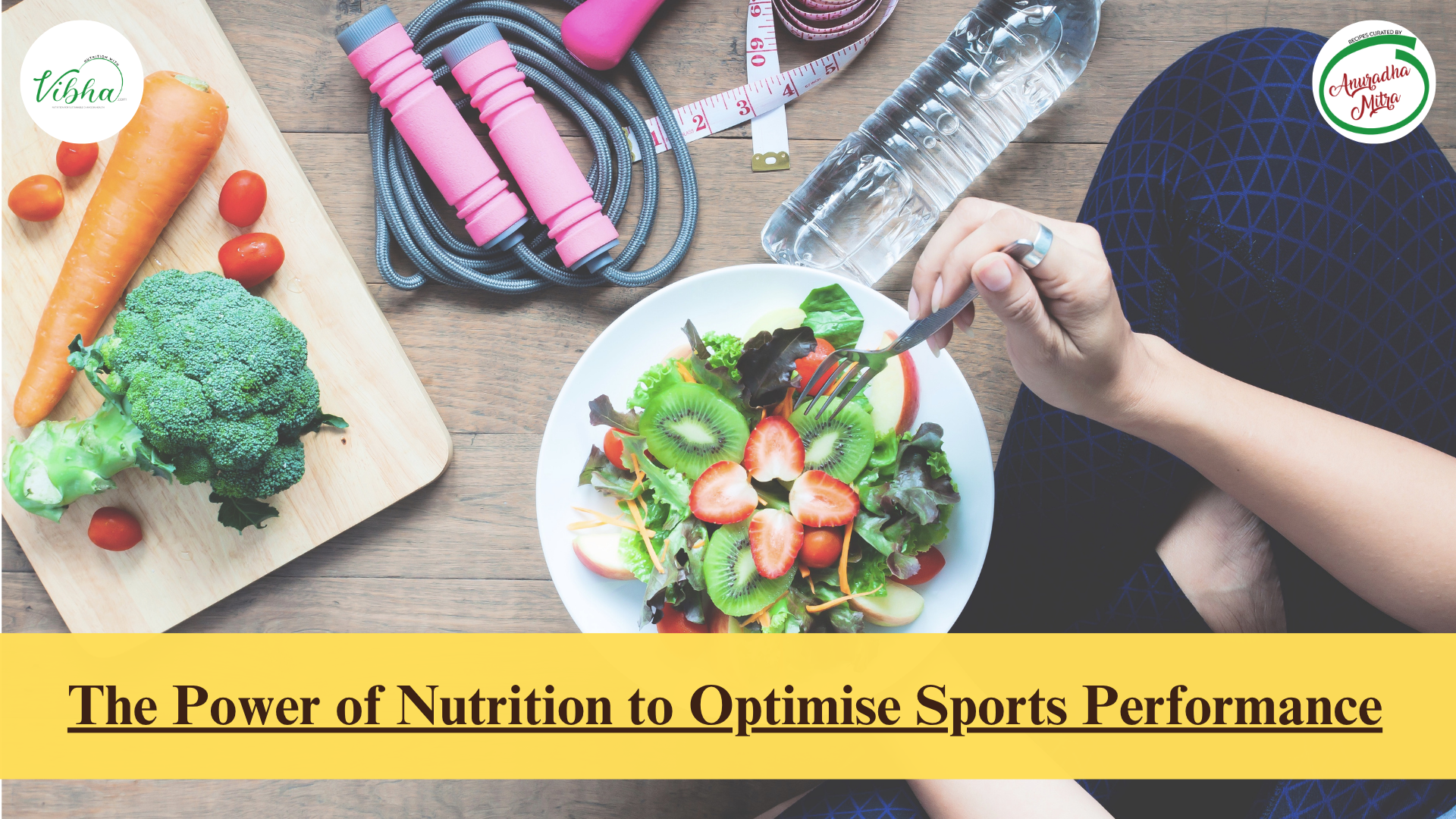Carbohydrates – A Yes or a No for young athletes?
What is the one thing that pushes you to hustle? A motivating quote or a pat on the back? The answer is different for different individuals. We all need external fuel to help us work. It might be talking with a friend or a walk in the park. These are some emotional/ social fuels that can pump our energy. The physical fuel for our body to work comes from the nutrition we provide. The major source of energy for our body comes from carbohydrates
Why should young athletes eat carbohydrates?
Carbohydrate is one of the prominent macro nutrients that comes from our diet. Carbohydrates are also known as saccharides/ sugar. Based on the length of the sugar chain, the classification of carbohydrates is done. Monosaccharides, oligosaccharides, polysaccharides, starches, etc. types of carbohydrates have different roles to play. The major function of carbohydrates is to provide energy and help in several metabolic processes. Carbohydrates are in all food groups except for meat, oils, plain tea/coffee, fish, and eggs
Is consuming carbohydrates to fuel young athletes a good option?
Absolutely yes, in fact, all types of carbohydrates are broken down in the body to form glucose. Glucose is the basic unit that is utilized by our cells. The sugars are stored as glycogen in the liver, and muscle for later utilization. We will learn more about what is the role of carbohydrates in the better performance of athletes. The storage, as well as the dietary intake of carbohydrates, provide energy during vigorous exercises. For endurance, and speed activities carbohydrates are required to provide energy and strength.
How many carbohydrates does a teenage athlete need?
It is recommended for young athletes to consume 3-8 gm of carbohydrates per kg body weight.
Let us look at some common terms we should know-
- Glycemic index
GI or glycemic index of a food is the parameter to check the spike in our blood sugar levels due to a food. This will often be addressed while giving food to the child during the training periods. For endurance sports, low GI carbohydrates are preferred to provide sustained energy throughout.
- Glycemic Load
GL or glycemic load refers to the carbohydrate content in any particular food, and the serving size will affect the rise in the blood sugar levels. Foods with similar carbohydrate content may have different impacts on the body. This is beneficial in understanding that high GI foods taken in small portion sizes will impact the sugar levels similar to the low GI foods eaten in large portions. These terms help us choose the right foods for our young athletes. For example, choosing a whole fruit rather than fruit juice will sustain longer in the body. While fruit juices will spike blood sugar levels and are digested quickly.
- Glycogen loading-
As we know, glucose is stored in the form of glycogen for utilization. These glycogen stores are depleted within a 90-120 minute vigorous exercise session. Depletion in the glycogen stores can lead to fatigue and low performance. Researches prove that consuming carbohydrates post-training can replenish the lost glycogen stores.
After replenishment, these glycogen stores are ready for utilization during exercise and provide energy.
Carbohydrate recommendations for athletes to maximize performance?
Based on the glycemic index, carbohydrates are divided into quick and slow forms of carbohydrates. Quick forms are the ones that are easily digested and instantly serve the body with energy. Whereas, a slow form of carbohydrate will be slowly broken down and periodically provide energy.
| SLOW CARBOHYDRATES | QUICK CARBOHYDRATES |
| Oats with milk | Refined carbohydrate products (white bread) |
| Whole grain bread | Rice, cornflakes, and similar products |
| Pulses, lentils | Sports/ energy drinks |
| Under Ripe fruits | Ripe fruits |
| Dairy products | Refined sugar and sugary products |
| Raw vegetables | Cooked veggies (potatoes and starchy veggies) |
| Nuts | Candies, dried fruits. |
What carbs are best for the pre-workout of teenage athletes?
Research suggests that an easy-to-digest high-carbohydrate meal 3 hours prior to the training can have a 30% greater impact on the performance of sprinters. This meal should consist of high glycemic index carbohydrates for quick digestion. It will increase the glycogen stores by 11-15%. The young athlete involved in team sports will follow similar dietary guidelines. Frequent high-intensity movements are required during team sports like football, rugby, and cricket. The quick intense action requires enough liver and muscle glycogen to provide energy. Thus, the intake of carbohydrates before the training session will help the child perform better.
While playing the sport, the athlete might need a quick source of energy. For such events, carbohydrates, gels, mouthwashes, and beverages are made available. These contain simple sugars that are directly introduced into the body.
But, should teen athletes have energy drinks? These are not usually recommended for children, as they are caffeinated and extremely high in sugar. More research needs to be done to analyze the composition of these products and their efficacy for children. Nevertheless, if the athlete feels fatigued while exercising we can give simple sugars from fruits, yogurt, and curd sandwiches.
What carbs are best for the post-workout of teenage athletes?
High GI carbohydrates can be given post-training and in between to quickly refuel the lost muscle stores.
Do athletes need more carbohydrates?
Along with athletic performance, the normal physical development of a child athlete has to occur. Acknowledging the growth of the child along with training needs. Physical bodily changes occur while growing up, and enough nutrition. As the utilization is more, the dietary requirement of the child athlete increases. Compared to adults, the glycogen storages of children are smaller, thus frequent carbohydrate consumption is suggested.
Some guidelines for our young athletes.
● Never miss your breakfast
This might leave you feeling fatigued and low on energy.
● Eating what helps you perform better
Try not to get confused with low and high GI foods, eat what helps you improve your performance.
● Do not try anything new on the competition day
You would not appreciate an upset stomach, nausea, or discomfort on the day you wish to perform your best. Stick to regular routine meals.
● Hydrate! Dehydration is proven to be linked with feelings of confusion. Dehydration can de-escalate your performance. What is the best form of hydration for athletes? Sip enough water 1-2 hours before your event. Also, a cup of water 10 minutes before your event begins.
What are recovery foods-
These foods are given to replenish the exhausted stores. Recovery foods should contain both carbohydrates and proteins. These are needed within 30 minutes post-intense exercise followed by a meal after an hour or two. These are important to replenish the lost glycogen stores. Also, protein consumption will ensure the regain of muscle loss during exercises. Provide recovery foods like egg sandwiches, fruit yogurt, and paneer/tofu/chicken salad.
Guidelines for better performance-
● Apart from carbohydrates, other macronutrients like protein and fats are important. Fluids for hydration, intake of enough micronutrients, and protein-rich meals are important.
● Enough fluid intake to maintain the body temperature and recover water losses. Intake of 150-200 ml water every 15-20 minutes of the activity can avoid dehydration.
● Sugar and electrolyte-rich energy drinks can compensate for the electrolyte losses via sweating. (Only after a 60-minute vigorous exercise, we recommend sports/energy drinks). Do not consume alcohol or high-caffeine drinks on the event day.
● Several micronutrients participate in the muscle building, immunity production, bone composition, and energy metabolism of the child. Some nutrients such as calcium, vitamin D, and iron should be provided enough through diet or supplements. These are required for the physical, and mental growth, bone health, and immunity of the child.
● An ideal diverse diet consisting of vegetables, fruits, whole grain cereals, pulses, dairy products, and non-veg protein sources. Also nuts and oilseeds are to be included for their extra health benefits. A nourishing diet will help the child perform better and heal faster.
Ideal dietary guidelines would be balanced nutritious meals for young athletes. The key is to maintain a balance between the intake and utilization of energy. Apart from nutrition, enough rest and supportive relations are beneficial. A positive environment helps our budding athletes grow healthier and stronger.
We at Nutrition with Vibha , aspire to educate & empower our readers with more such relevant information. Do write to us about topics of your interest ✨





